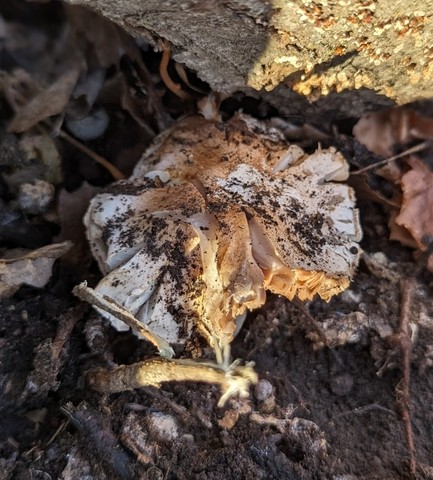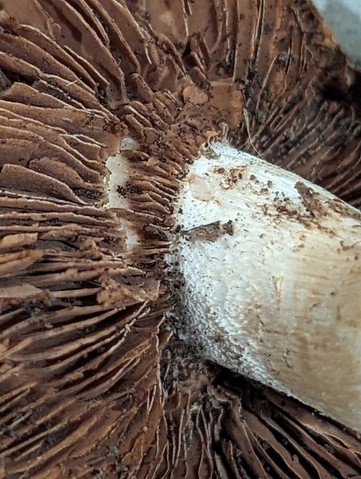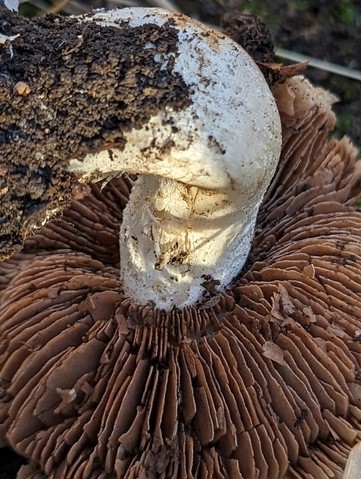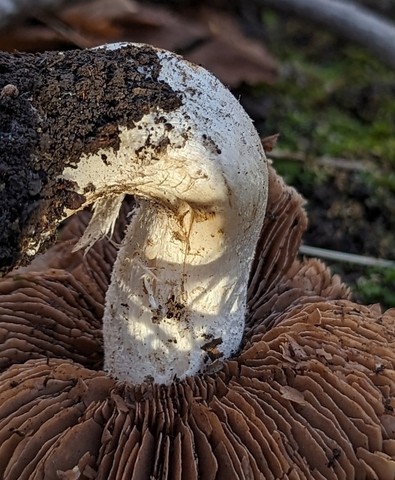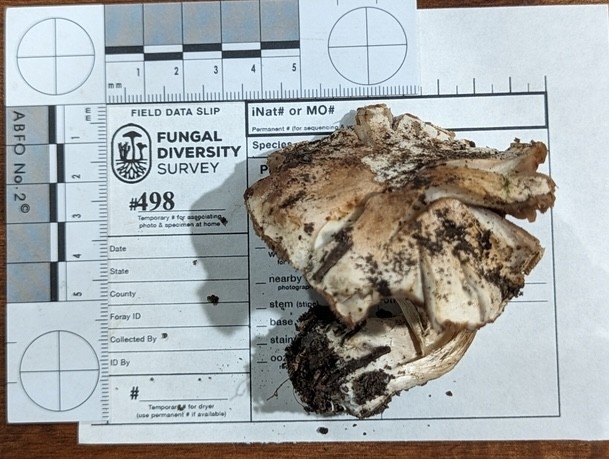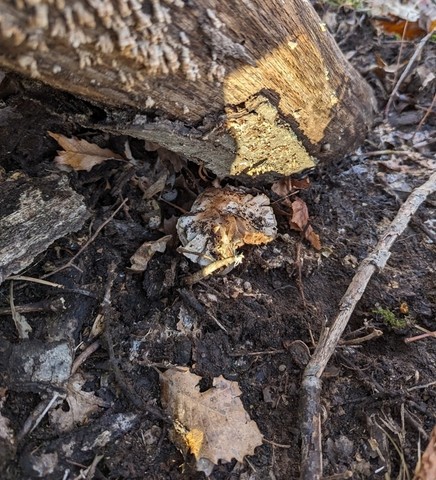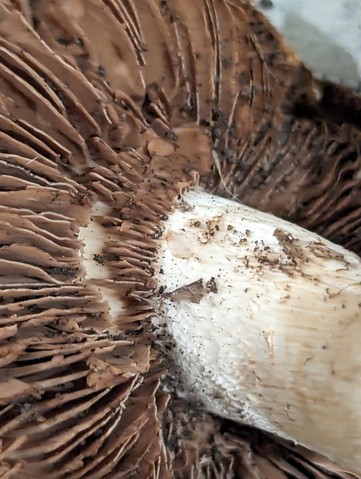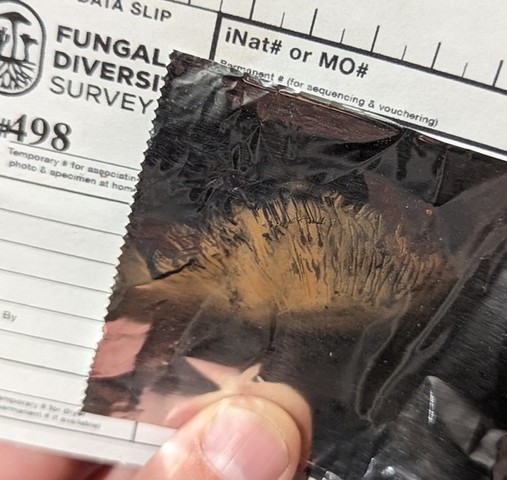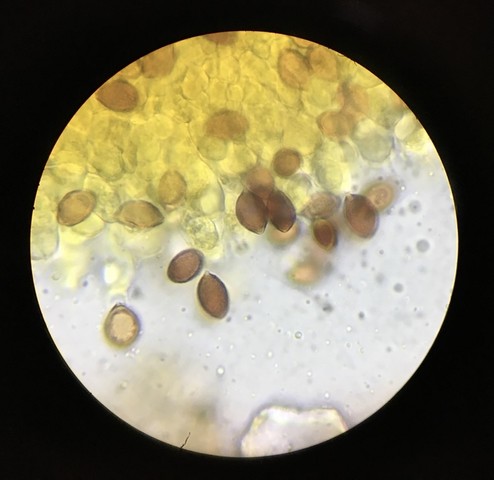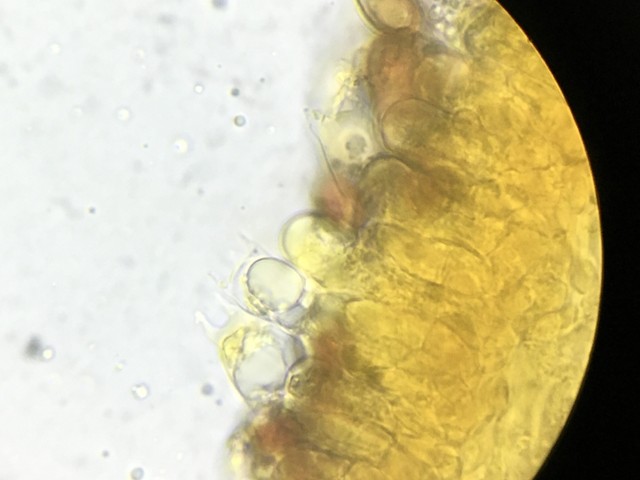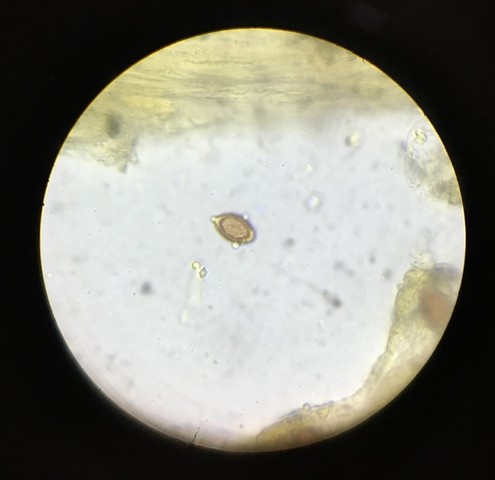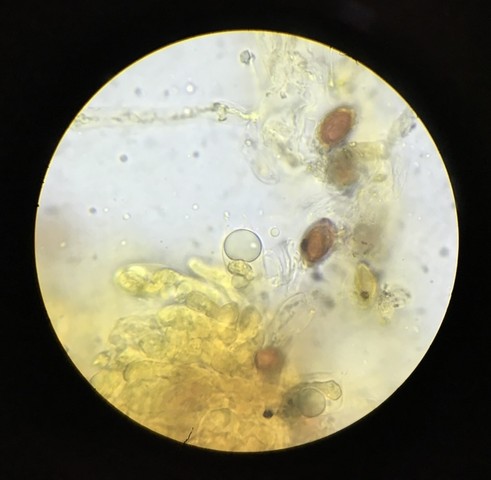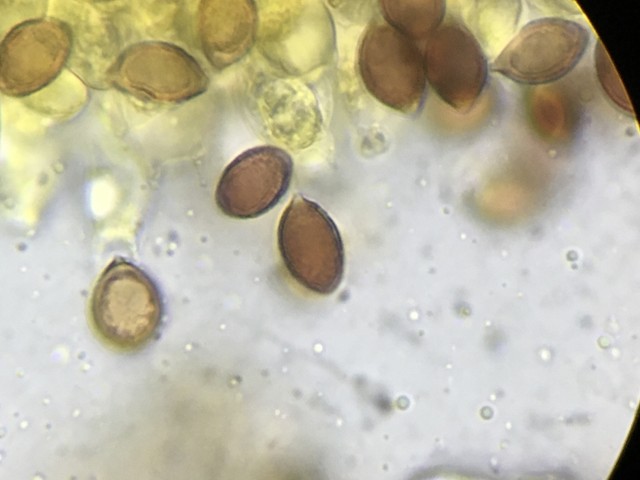White-Margined Hebeloma
Hebeloma albomarginatum
Life > Fungi > Basidiomycota > Agaricomycotina > Agaricomycetes > Agaricomycetidae > Agaricales > Agaricineae > Strophariaceae > Hebeloma
Description
Hebeloma albomarginatum appears in soil in the fall in woodlands associating with broadleaf trees. The species name means “white-margined,” referring to the pale edge of the cap. It is distinguished from similar species by spore shape and the color of the cap, which is “Light Cinnamon Drab” except for the margin (Hesler, 1967).
The cap is convex, sticky when moist, and pale cinnamon-brown with a bright white outer edge. Its surface is finely fibrous. The gills are white when young, becoming brown with age, and are adnate to rounded-adnate with slightly ragged edges. The stem is white, slightly swollen at the base, and covered near the top with fine white scales. The flesh is firm and white, with a strong radish-like odor and a sharp, earthy taste. The spore print is brown.
Observations
November 20th, 2023 Indian Cave State Park
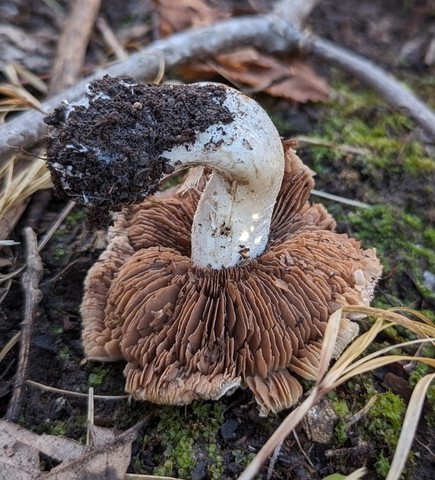
#498
- Growing from soil at the base of Chinkapin Oak in open mixed oak/hickory woodland slope, near woodland edge.
- Nearby Trees: Chinkapin Oak, American Hophornbeam, Elm, Ash, and Northern Red Oak.
Pileipellis tacky.
Smell: strong radish-like smell. Taste: earthy and radish-like.
Microscopy: (mounted in Melzer's) Basidia with 4 sterigmata. Spores dextrinoid and lightly warted.
References
Hesler, L. R. (1977). New Species of Hebeloma. Kew Bulletin, 31(3), 471–480. https://doi.org/10.2307/4119390
Created December 15, 2025 at 10:41 AM
